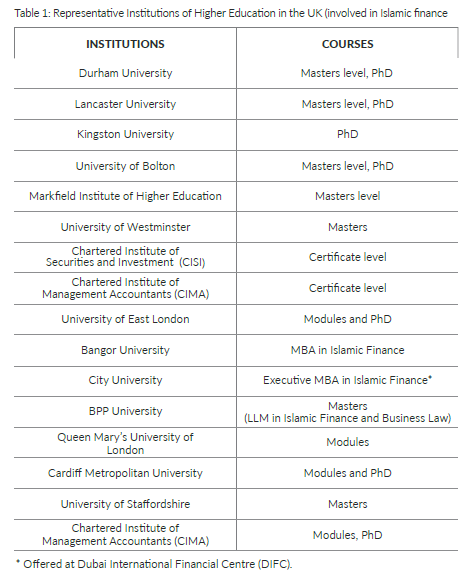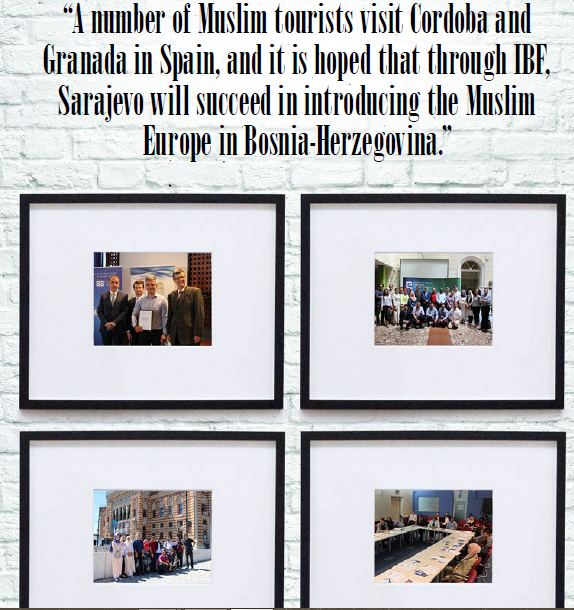The University of
Sarajevo Summer School
July 3-6, 2017
ISFIRE Assessment: 4/10
The IZU
Summer School
July 3-6, 2017
ISFIRE Assessment: 4/10
Durham Islamic Finance
Summer School
July 24-28, 2017
ISFIRE Assessment: 8/10

After the huge success of Durham University’s Islamic Finance Summer School (established in 2010), an increasing number of universities around the world have started organising summer schools in IBF. Not all of such initiatives have succeeded, as many enthusiasts started summer schools without proper planning and failed miserably. One such example of failure is a summer school at the University of East London (UEL), which was organised last year around the same time when the most celebrated Durham University Islamic Summer School was organised. The result was obvious – the UEL’s programme fell short of high standards and expectations. This summer, there have been three important summer schools held in Turkey, Bosnia- Herzegovina and the UK. Pakistan also witnessed a number of training programmes organised in summer holiday hill stations like Murree and Abbottabad.
Summer School at Istanbul Sabahattin Zaim University
Istanbul Sabahattin Zaim University (IZU) organised a summer school called International Islamic Economics and Finance Summer School on July 10-13, 2017. This was the fourth edition of the summer school founded in 2014 in collaboration with Durham University, UK. The next three editions (including that of this year) were organised solely and independently by IZU. Attended by primarily Turkish delegates, the summer school nevertheless attracted a number of international trainers, including Professor Masudul Alam Choudhry (Malaysia), Professor Humayon Dar (UK), Dr Sofiza Azmi (Malaysia), Dr. Sami Al-Suweilem (Saudi Arabia) and Dr Shariq Nisar (India).
All the credit to develop this summer school must goes to Professor Mehmet Bulut, President of IZU, who takes personal interest in the development of Islamic economics, banking and finance in Turkey in general and at IZU in particular. The state-of-the-art building of the International Research Centre for Islamic Economics and Finance provides excellent resources to undertake research and teaching projects in Islamic economics, banking and finance.
The summer school at IZU started with an ambition of becoming an international rendezvous for the Who’s Who in IBF, and in fact succeeded in doing so in the first year. Since then, it has become a bit introvert, as this year’s programme could not attract any significant number of participants from the international market.
With the appointment of Dr Abdelkader Caci as a member of the permanent faculty, one should hope that the future editions of the summer schools will have more international participation. Dr. Caci has vast experience of running programmes similar to the summer school at IZU, as he was one of the founding members of the International Orientation Course in Islamic Economics, Banking and Finance, which the Islamic Foundation of Leicester ran for many years before the programme was eventually shut down.

Summer School at the University of Sarajevo
The most important development in 2017 was the holding of a summer school in IBF by the Centre for Islamic Economics, Banking and Finance (CIEBF) at the University of Sarajevo in Bosnia-Herzegovina. In a way, this is an extension of the endeavour of Bank Bosna International (BBI) to promote IBF in the country and southeastern Europe (SEE).
The summer school was named as Certificate in Islamic Finance, due to technical restrictions on the use of the term “Summer School” as per the rules and regulations of the University of Sarajevo.
The primary objective of the summer school at the University of Sarajevo was to create a platform for education, promotion, research and development of Islamic economics and finance at the university. This is part of a wider agenda to development human resources for the fast-growing IBF industry in the country and the SEE. The summer school was held on July 3-6, 2017.
This ISFIRE Special Report documents the individual contributions of Professor Mehmet Asutay of Durham University, who has emerged as one of the most influential academicians in the global Islamic financial services industry. After the likes of Professor John Presley (Loughborough University), Professor Rodney Wilson (Durham University), Professor Simon Archer (University of Surrey), Professor Mehmet Asutay has emerged as the torch-bearer of the academic leadership in IBF. A number of trainers at the summer school at Sarajevo have directly or indirectly benefited from Professor Mehmet Asutay. This includes Dr. Velid Efendic, founder of the summer school at the University of Sarajevo.
The summer school was designed in such a way that it provided the participants an opportunity to become familiar with the latest trends in IBF and the practical applications of nominate Islamic financial contracts in a modern context. There were a number of lectures and training sessions by eminent experts in this field. A unique aspect of the summer school visited to historical and touristic places of interest. Bosnia- Herzegovina is an interesting country, with a multicultural society with different faith-based and ethnic groups. “Bosnia and Herzegovina is a unique country where East and West meet, where different cultures and religions live together, a unique place wherein hundred meters away from each other we have a mosque, a Catholic church, an Orthodox church and a synagogue that together defy time and various temptations for hundreds of years,” said Dr. Velid Efendic.
The participants from the United Kingdom, Hungary, Turkey, Serbia, Macedonia, Nigeria, Malaysia and Bulgaria enjoyed not only the technical discussions and lectures but also benefitted from the cultural content’s context of the programme. While Bosnia-Herzegovina has only one Islamic banks, namely, Bank Bosna International (BBI), the participants shared perspectives and experiences from other markets and countries that enjoy more comprehensive Islamic financial sectors. “Our local delegates benefitted from the international speakers who came from the countries like UK that has more diverse Islamic financial sector,” said Dr. Velid Efendic. The speakers came from the UK and Turkey, in addition to the local speakers drawn from the University of Sarajevo and the senior executives at BBI.
It was an intensive four-day programme, which succeeded in improving and further developing the participants’ knowledge and skills in Islamic finance. It was an excellent programme that would further strengthen the academic and professional linkages between the University of Sarajevo and Bolton University, and also with the pioneering institutions like Durham University and Markfield Institute of Higher Education.
The participants of the Sarajevo summer school enjoyed a historical trip to Mostar. Sarajevo itself is a beautiful city with three distinct ditricts – the Ottoman, Austrian and modern. The central Ottoman district is Mini Istanbul in the words of Rafe Haneef, CEO of CIMB Islamic. Holding of the summer school in Sarajevo is also an attempt to introduce the Muslims to the beauty of the Muslim Europe. A number of Muslim tourists visit Cordoba and Granada in Spain, and it is hoped that through IBF, Sarajevo will succeed in introducing the Muslim Europe in Bosnia-Herzegovina.
Head of the organizing committee and founder of the programme, Dr. Velid Efendić, was satisfied with the number of participants and pointed out that the summer school was one of the many other successful projects that CIEBF regularly organizes every year. “This Summer School is our new project that is being built in addition to our Masters in Islamic Banking programme, that we offer in conjunction with the University of Bolton from UK, resulting in award of a joint degree,” he said.
One of the Turkish participants, Fatih Korucu, expressed his views, “This [summer school] surpassed my expectations as it brought participants from different parts of the world to share their experiences, knowledge and ideas. Bosnia-Herzegovina is a bridge between the East and the West and through it the concept of Islamic banking should be extended to the West.”
Durham Islamic Finance Summer School
Undoubtedly the best summer school in Islamic finance in the world, Durham Islamic Finance Summer School (DIFSS), attracts the best speakers from both the academia and the global Islamic financial services industry. The participants also happen to come from diverse ethnic, national and faith backgrounds. Durham Centre for Islamic Economics and Finance (DCIEF) is an internationally-acclaimed Centre of Excellence for Islamic finance.
Held on July 24-28, 2017, this year’s edition of the DIFSS attracted about 50 external delegates, in addition to 35-50 internal participants who are registered in different academic programmes at Durham University.
This year’s programme was as rigorous as in previous years, and the feedback from the participants was extremely positive.
“Undoubtedly, one of the best summer schools in Islamic finance I have ever attended,”
said Kamran Sherwani, Head of Shari’a and Compliance at Abu Dhabi Commercial Bank’s Islamic window, ADCB Islamic.
Kamran Sherwani proved to be one of the most popular speakers at the DIFSS. He shared his expertise on profit distribution mechanisms in Islamic banks, and also took a session on sukuk structuring. High-quality speakers like Kamran Sherwani are a hallmark of the DIFSS.
“Undoubtedly, one of the best summer schools in Islamic finance I have ever attended.”
Kamran Sherwani, Head of Shari’a and Compliance, ADCB Islamic



